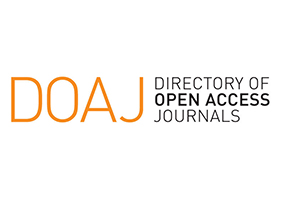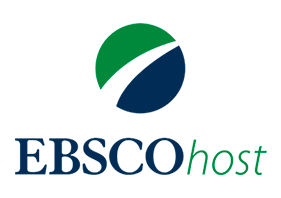Student perception of the gaming strategy in higher education. Experimental study
DOI:
https://doi.org/10.33304/revinv.v20n1-2025006Abstract
The advancement of technology has contributed to the educational context by fostering interaction. This study aims to determine students' perceptions of learning outcomes and teaching methodologies in four experimental courses at the International University of Ecuador and compare them with the perceptions of courses where gamification methodologies were not applied. The experiment included 50 students. Likert scales were used to measure students' perceptions of the teaching methodologies employed. The results suggest that, in face-to-face classes, the overall satisfaction of students in courses utilizing gamification strategies is statistically higher than in courses with traditional methodologies. Conversely, virtual courses showed opposing results. It is concluded that gamification in face-to-face courses significantly enhances class dynamism, learning objectives, and the overall classroom experience.
Downloads
References
Bao, X., (2024). Transforming University Research and Education: Unleashing the Potential of Immersive Multimedia and AI-Assisted Blended Learning Through Online Gaming. Computer-Aided Design and Applications, 21(S5), 106–119. https://doi.org/10,14733/cadaps.2024.S5,106-119
Baque-Reyes, G., y Portilla-Faican, G. (2021). El aprendizaje significativo como estrategia didáctica para la enseñanza-aprendizaje. Polo del Conocimiento, 6(5). https://doi.org/10.23857/pc.v6i5.2632
Brooks, A. (2021). Gaming, VR, and immersive technologies for education/training. Intelligent Systems Reference Library, 196, 17–29. https://doi.org/10.1007/978-3-030-59608-8_2
García-Quismondo, M. y Valero, P., (2021). Competency education from visual literacy and Gaming for educational innovation: Proposal for an instructional course design. Ibersid, 15(1), 75–83.
González-Alfaro, R. F. (2022). La planificación curricular: Punto de partida del trabajo pedagógico. Cultura Educación Sociedad, 13(1), 219–232. https://doi.org/10,17981/cultedusoc.13,1.2022,13
González C., Sánchez J. y Vera M., (2022). El juego como estrategia didáctica para el fortalecimiento de la lectoescritura en la educación inclusiva de niños con discapacidad. Visión Antataura vol. 6, núm. 2. http://portal.amelica.org/ameli/journal/225/2254099009/
Grigorescu, F., Scarlat, C. y Ioanid, A., (2023). The Future of Learning in Romanian Schools: Examining the Transformative Impact of Gaming Technologies in Education—A Pilot Study in Bucharest. Smart Innovation, Systems and Technologies, 366, 483–492. https://doi.org/10,1007/978-981-99-5414-8_44
Halbrook Y., O'Donnell A. y Msetfi R., (2019). When and How Video Games Can Be Good: A Review of the Positive Effects of Video Games on Well-Being. Perspectives on psychological science: a journal of the Association for Psychological Science, 14(6), 1096–1104. https://doi.org/10,1177/1745691619863807
He, X., (2024). Utilizing Virtual Reality and Online Gaming for the Construction and Application of Distance Physical Education Teaching Window in Emergency Situations. Computer-Aided Design and Applications, 21(S5), 223–236. https://doi.org/10,14733/cadaps.2024.S5,223-236
Holguín, F., Holguín, E. y García, N. (2020). Gamificación en la enseñanza de las matemáticas: una revisión sistemática. Telos, 22(1). https://doi.org/10.36390/telos221.05
Koivisto, J., Havola, S., Mäkinen, H. y Haavisto, E. (2022). Learning clinical reasoning through gaming in nursing education: Future scenarios of game metrics and artificial intelligence. AI in Learning: Designing the Future, 159–173. https://doi.org/10.1007/978-3-031-09687-7_10
Loor, K. y Alarcón, L. (2021). Estrategias metodológicas creativas para potenciar los estilos de aprendizaje. Revista San Gregorio, 48. https://doi.org/10.36097/rsan.v0i48.1934
López, T., Manzano, R., Manzano, R. y Zumbana, L. (2022). Methodological strategies to strengthen the teaching-learning process in basic education children. Salud, Ciencia y Tecnología [Internet]. https://revista.saludcyt.ar/ojs/index.php/sct/article/view/254
Mendoza, R. y Tejeda, R. (2022). La alfabetización visual en la formación de docentes: revisión sistemática según las directrices PRISMA 2020. Revista científica de investigación educativa, 8. http://portal.amelica.org/ameli/journal/676/6763666002/
Morantes, I. (2023). Inteligencia artificial (IA) en la investigación científica: sistematización y reflexiones sobre experiencias educativas. Revista educare, 27(3). https://revistas.investigacion-upelipb.com/index.php/educare/article/view/2050/1797
Ordóñez, M. (2022). La gamificación como estrategia didáctica en el aprendizaje–enseñanza de operaciones aritméticas con números racionales en séptimo de básica de la escuela Juan José Flores. Universidad Politécnica Salesiana. Cuenca, Ecuador. https://dspace.ups.edu.ec/bitstream/123456789/22673/1/UPS-CT009814.pdf
Román-Santana, W. M., Martínez-Alonzo, J. M. y De La Cruz-Mena, D. C. (2024). El juego como estrategia lúdica: fortalecimiento de la competencia, pensamiento lógico, creativo y crítico en educación infantil. Perspectivas en Inteligencia, 16(25), 177–194. http://doi.org/10.47961/2145194X.718
Sánchez, M. (2023). El metaverso: ¿la puerta a una nueva era de educación digital? Investigación en educación médica, 11(42). https://doi.org/10.22201/fm.20075057e.2022,42.22436
Saeed, M., Khan, A., Khan, M., El Saddik, A. y Gueaieb, W. (2023). Gaming-based education system for children on road safety in metaverse towards smart cities. Proceedings of 2023 IEEE International Smart Cities Conference, ISC2 2023. https://doi.org/10.1109/ISC257844.2023.10293623
Tzafilkou, K. y Economides, A. (2021). Mobile game-based learning in distance education: A mixed analysis of learners’ emotions and gaming features. Lecture Notes in Computer Science (including subseries Lecture Notes in Artificial Intelligence and Lecture Notes in Bioinformatics), 12785 LNCS, 115–132. https://doi.org/10.1007/978-3-030-77943-6_8
Yunda, M. y Zambrano, W. (2023). Juegos interactivos en el desarrollo del lenguaje en niños de 3 a 4 años. LATAM, Revista Latinoamericana de Ciencias Sociales y Humanidades, 4(6), 1249–1261. https://doi.org/10.56712/latam.v4i6.1520
Zambrano-Álava, A., Lucas-Zambrano, M., Luque-Alcívar, K. y Lucas-Zambrano, A. (2020). La gamificación: herramientas innovadoras para promover el aprendizaje autorregulado. Dominio de las ciencias, 6(3), 349–369.
Downloads
Published
How to Cite
Issue
Section
License

This work is licensed under a Creative Commons Attribution-NonCommercial-ShareAlike 4.0 International License.
This journal provides immediate free access to its content under the principle of making research available to the public free of charge, which fosters a greater exchange of global knowledge. This work is under a Licencia Creative Commons Atribución-NoComercial-CompartirIgual 4.0 Internacional (Creative Commons Attribution-NonCommercial-ShareAlike 4.0 International License) However, any request by the author to obtain permission for their reproduction will be evaluated.










